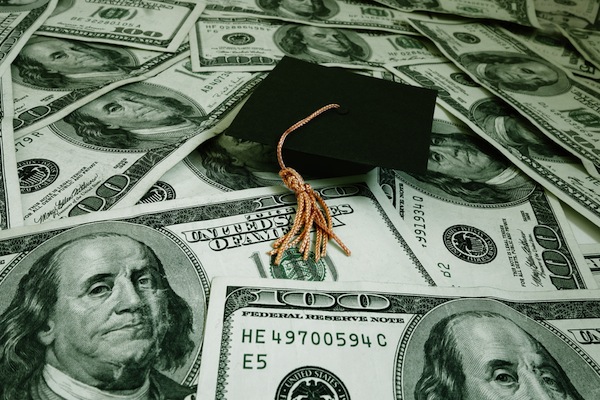Increased Student Loan Rates Will Have Lasting Impact on Economy

After the interest rate for subsidized Stafford loans went from 3.4 percent to 6.8 percent at the beginning of the month, student advocacy groups vowed not to take the increase lying down.
The new rate "will cause the average college student to pay an extra $1,000 per year, per loan," according to Robert Applebaum, executive director for StudentDebtCrisis.org. For that reason, Applebaum says his organization and others plan to fight the issue until Congress is forced to pass an extension of the previous interest rate. It may not be an easy fight, as the Senate failed in an attempt to lower rates on Wednesday.
Sophia Zaman, vice president of the United States Student Association, made a similar estimate, adding that students could expect to pay a total of $4,000 extra over the lifetime of a loan.
Some estimates are not as drastic, but still raise concern.
Jon Fansmith, associate director of the American Council on Education, said the average student loan borrower could expect to see his or her monthly payments increase by $25 if Congress doesn't act.
"Since subsidized loans go to students with demonstrated financial need, the increase is hitting the very students who can least afford it," he pointed out.
These calculations would increase yearly payments by $300, rather than $1,000.
Besides putting a financial burden on students ill-prepared to carry it, the increase in federal rates might push students to take out risky private loans, according to Shannon Gallegos, communications coordinator for the Institute for College Access and Success.
"Private loans are one of the riskiest, most expensive ways to pay for college," she said. "Like credit cards, they typically have variable interest rates that are higher for those who can least afford them, and private loans do not provide the important deferment, income-based repayment, and loan forgiveness options that accompany federal student loans."
All sources agreed that no one really wants to see loan rates double, but inaction may continue due to what Fansmith described as "fundamental disagreements" within Congress about the best ways to resolve the issue.
While the increase would result in more revenue for the government, activists question if it's right to profit off a program intended to help students in need. That concern becomes particularly poignant, given that the government is already set to make $50 billion from student loans this year, according to the Congressional Budget Office, and that's based on the 3.4 percent interest rate.
"We should be investing in our nation's students and ultimately next generation of leaders," Zaman said. "Not treating them as profit margins."
Burdening America's future workers and leaders is a concrete concern, as Gallegos pointed out with data from the Federal Reserve Bank of New York. While educated people are more likely to buy homes, a survey of 30-year-old Americans showed that those with student loan debt were less likely to have mortgages, meaning that graduates might be putting off important economic and social steps like home ownership until they can pay down their student loans.
In other words, what might seem like a small thing now -- an extra $300 or $1,000 a year -- could have a long-lasting impact, affecting when Americans are ready to make big purchases like cars and homes, and when they start families of their own.
Zaman put it bluntly:
"If we don't invest in students now, we're crippling our nation's economic future," she said.





